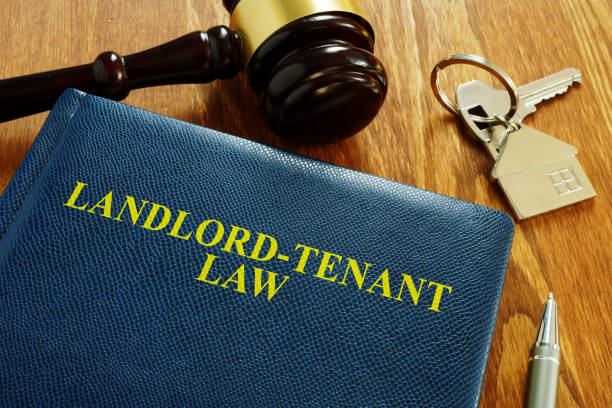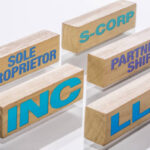As a new landlord, there are several things you need to consider in order to be successful. In this article, we’ll discuss eight tips that can help you navigate the challenges of being a landlord and ensure a positive experience for both you and your tenants.
1. Familiarize Yourself with Local Landlord-Tenant Laws
One of the most important things you can do as a new landlord is to familiarize yourself with the landlord-tenant laws in your area. These laws vary from state to state and can cover everything from lease agreements to security deposits to eviction procedures. Ignorance of these laws can lead to legal problems down the line, so it’s important to take the time to understand your rights and obligations as a landlord.
To get started, research the landlord-tenant laws in your state or city. You can often find this information on your state or city government website, or by contacting your local housing authority or landlord association. Once you have a basic understanding of the laws, make sure to keep up to date with any changes or updates that may affect your rental property.
2. Screen Your Tenants Carefully
Finding good tenants is essential to being a successful landlord. Good tenants pay rent on time, take care of your property, and follow the rules. Bad tenants, on the other hand, can be a nightmare, causing damage to your property, not paying rent, or disrupting the peace of your neighborhood.
To avoid these problems, it’s important to screen your tenants carefully before renting to them. This means conducting a thorough background check, including a credit check, to make sure they have a history of paying their bills on time and don’t have a criminal record.
You should also verify their employment and income to ensure they can afford to pay rent, and contact their previous landlords to see if they have a history of being good tenants. By taking these steps, you can increase your chances of finding good tenants who will take care of your property and pay rent on time.
3. Set Clear Expectations and Boundaries
Once you’ve found good tenants, it’s important to set clear expectations and boundaries so that everyone is on the same page. This means outlining the rules of your property, including rent due dates, maintenance responsibilities, and any other rules you have in place.
Make sure to communicate these expectations clearly in your lease agreement, and go over them with your tenants before they move in. This will help prevent misunderstandings and conflicts down the line.
4. Keep Your Property in Good Condition
Regular maintenance and repairs will help keep your property in good condition and increase its value over time. This means fixing any issues as soon as they arise, such as leaky faucets, broken appliances, or damaged flooring.
In addition, it’s important to keep up with routine maintenance tasks, such as cleaning gutters, changing air filters, and trimming trees and bushes. By keeping your property in good condition, you can attract good tenants and reduce the chances of costly repairs down the line.
5. Establish a Good Relationship with Your Tenants
Establishing a good relationship with your tenants is important for several reasons. First, it can help prevent conflicts and ensure a positive renting experience for everyone. Second, it can make it easier to address any issues that arise, such as late rent payments or maintenance requests.
To establish a good relationship with your tenants, be friendly and responsive to their needs. Address any issues promptly and communicate with them regularly to ensure they feel heard and valued. By building a good relationship with your tenants, you can increase the chances of them staying long-term and taking care of your property.
6. Keep Good Records
Keeping good records is essential for managing your rental property effectively. This means keeping track of all transactions, including rent payments, repairs, and any other communication you have with your tenants. By keeping good records, you can easily refer back to previous conversations or agreements, and have a clear understanding of the financial status of your rental property.
There are many software programs available that can help you keep track of your rental property finances, such as QuickBooks or PortfolioBay. By using a software program, you can automate many of your financial tasks, and have a clear picture of your rental property’s financial health at all times.
7. Plan for the Unexpected
Even with the best planning and preparation, unexpected issues can arise when you’re a landlord. For example, a tenant may unexpectedly move out, leaving you with a vacant unit, or a major repair may be needed that you didn’t anticipate.
To plan for the unexpected, make sure you have a contingency plan in place. This means having extra funds set aside for unexpected repairs or vacancies, and having a plan in place for filling any unexpected vacancies quickly.
In addition, it’s important to have good insurance coverage in place to protect your rental property from unexpected damage or liability claims. Make sure you have adequate property insurance and liability insurance to protect your investment.
8. Consider Using Landlord Software
As mentioned earlier, using landlord software can be a great way to streamline your rental management tasks and save time. For example, PortfolioBay is a cloud-based landlord software that offers features such as online rent collection, automated lease renewals, and maintenance tracking.
By using landlord software, you can automate many of your rental management tasks, such as screening tenants, managing leases and rent payments, and organizing maintenance requests. This can save you time and reduce the chances of errors, allowing you to focus on other important aspects of being a landlord.
Conclusion
In conclusion, being a landlord can be a rewarding and profitable experience, but it requires careful planning and preparation. By familiarizing yourself with local landlord-tenant laws, screening your tenants carefully, setting clear expectations and boundaries, keeping your property in good condition, establishing a good relationship with your tenants, keeping good records, planning for the unexpected, and considering using landlord software, you can increase your chances of being a successful landlord and enjoying a positive renting experience.



